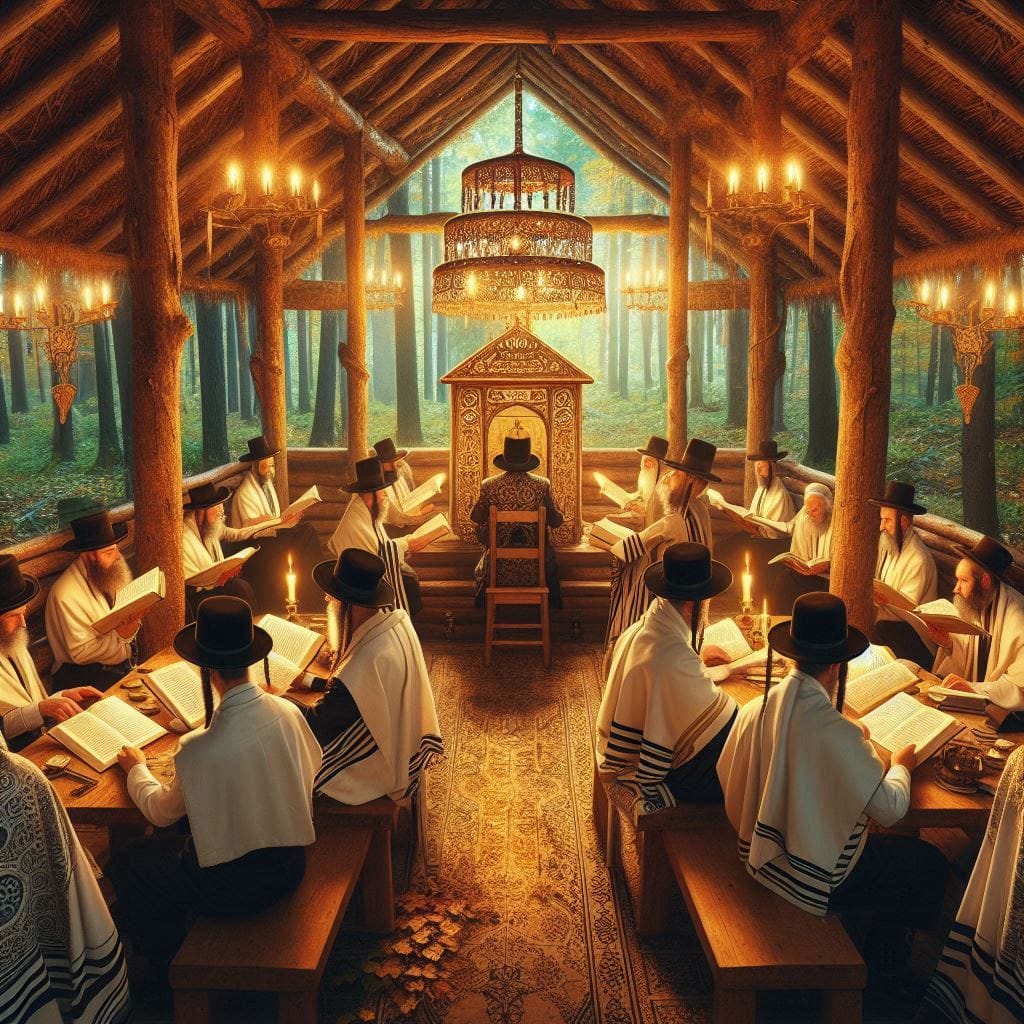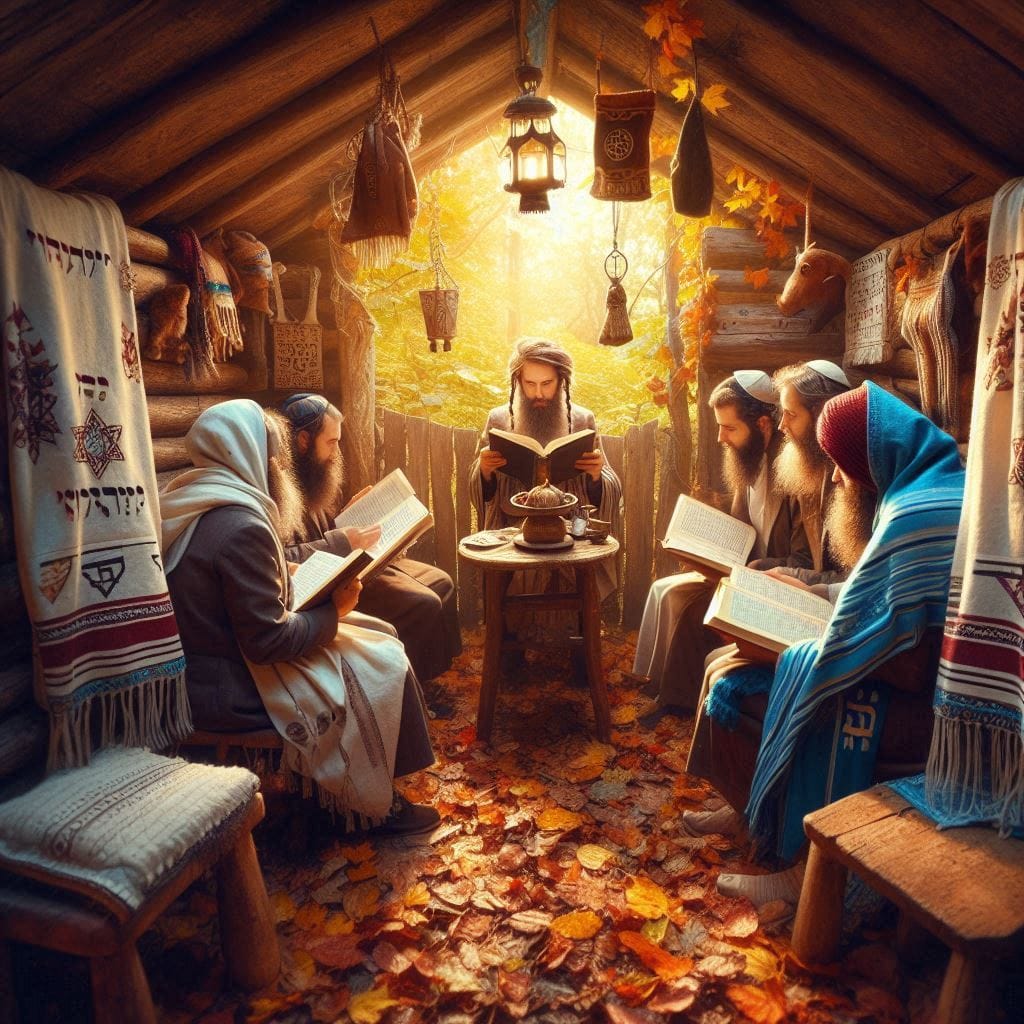
Dismantling the Hierarchy: A Call to Covenant Integrity Part 1
B"H
Dismantling the Hierarchy: A Call to Covenant Integrity
Prologue – A Sincere Cry for Unity
“I know this isn’t the best time to bring this up… but I can’t stay silent anymore.”
So began a heartfelt message I recently heard from a believer wrestling with the deep fractures within the Messianic world. With trembling honesty, they spoke of love for Jewish people, of dismay over unequal treatment, of the longing to see Jews and Gentiles as one people of God.
They quoted Isaiah 56, Ecclesiastes 12, Zechariah 8, and Ephesians 2, pleading that no wall should stand between those born Jewish and those who have come near through a Messiah (in their opinion it Yeshua). They lamented that some congregations exalt natural Jews while pushing away sincere Gentiles. “Don’t rebuild the wall Yeshua tore down,” they said. “If people come to you wanting to learn, teach them—don’t shove them away.”
Their words came from a place of truth and pain. And in that pain lies a question that must finally be answered—not sentimentally but halachically, not emotionally but covenantally.
A Response of Love and Clarity
To that sincere soul, I say: you are not wrong to feel the injustice. You see real harm when seekers of Torah are treated as second-class participants, told they may “taste” Israel but never “become” Israel. Your compassion is righteous, your Scripture citations are powerful—but the framework in which they have been taught to you is broken.
The problem is not love for Torah or longing for inclusion. The problem is a structure that refuses to finish what it starts. It invites Gentiles to approach Sinai but forbids them from stepping inside the covenant. It praises obedience yet denies belonging. It misreads the letters of Paul and turns them into barriers rather than gates.
So, before we move forward, let us be honest about what has happened. Entire networks of Messianic institutions have built a quiet hierarchy—Jews as covenantal elites, Gentiles as perpetual outsiders. They justify this with verses from 1 Corinthians 7, Galatians, and Ephesians, twisting situational words into eternal prohibitions.
But Scripture, halacha, and history tell a different story.
And that story—the real story—is what must now be told.

“One law shall be for the native and for the stranger who sojourns among you.”
— Exodus 12 : 49
Introduction — The Crisis of Spiritual Limbo
Within the modern landscape of Torah-minded believers, a deep confusion has taken root: a two-tier system that elevates Jews as covenantal elites while leaving Gentiles forever as “friends of Torah.” This is the great contradiction of today’s Messianic and affiliated movements—a framework that forbids sincere seekers from becoming what they already long to be.
It is more than a theological mistake; it is a moral failure that breeds hypocrisy and heartbreak. It disguises fear of halacha as fidelity to Jewish identity and strands earnest souls between two worlds—never fully part of Israel, never at home among the nations.
At Shtiebel on the Hill, we cannot accept this limbo. The Torah knows nothing of half-covenant people. If someone desires Torah, we are obligated to offer them traditional Judaism. If they decline, they must return honestly to their own community. Anything between is spiritual dishonesty.

1 · How the Two-Tier System Was Born
The seed of this confusion was planted through a misreading of Paul’s words in 1 Corinthians 7 : 18:
“Was anyone called while circumcised? Let him not become uncircumcised. Was anyone called while uncircumcised? Let him not be circumcised.”
The Greek phrase mē peritemnesthō is a present imperative—“do not rush into this now”—not a permanent prohibition. Later interpreters, however, froze this caution into an eternal ban, inventing the dogma that Gentiles must never convert.
Where Jewish Law says in the Mishneh Torah Issurei Biah 14; convert them immediately…
Paul’s other letters amplified the fear. In Galatians he warned, “If you receive circumcision, Messiah will profit you nothing,” and in Ephesians he wrote of “one new man.” Read without halachic context, these phrases terrified later readers. They came to believe that conversion was betrayal. What had once been pastoral crisis-management for the first-century diaspora hardened into a theological fence barring entry into the covenant itself.
From that misunderstanding emerged a social system of power. Every Messianic Organization institutionalized this hierarchy Jews on the top Gentiles on the bottom. They know that if they open the door to conversion, their donor base will shrink. Evangelical supporters who fear “Judaizing” would withdraw funds. Thus, Gentiles’ devotion becomes revenue: through this hierarchy, good non-jewish offerings sustain their own exclusion.
The damage is real. Across these congregations, families who sincerely request giyur are denied. A lone woman may be quietly converted to marry off to a single Jewish man, but when an entire household asks to convert, leaders forbid it. Marriages collapse under the strain; homes are torn apart. Even Gentile elders within these circles have pleaded for halachic conversion and been refused. This is not preservation of Jewish identity—it is spiritual negligence that destroys lives.
It must be said plainly: a movement that enriches itself by keeping Gentiles, Gentile trades the holiness of Torah for institutional income from non-Jewish donors. It fears halacha, fears losing donors, fears truth.
But fear is not covenant; fear is idolatry of reputation.

2 · The Torah’s Pattern of Inclusion
From Bereishit through Nevi’im, the pattern is constant: those who love Hashem join Israel through covenant.
Ruth declared, “עמך עמי וא-להיך א-להי — ‘Your people shall be my people, your God my God’” (Ruth 1 : 16). She was not told to remain a “Torah-respecting Moabite”; she became Israel.
The Erev Rav — the mixed multitude — left Egypt and entered covenant at Sinai.
Isaiah 56 : 6–7 proclaims, “הַנִּלְוִים עַל ה׳ לְשָׁרְתוֹ … וַהֲבִיאוֹתִים אֶל הַר קָדְשִׁי — ‘The foreigners who join themselves to Hashem … I will bring them to My holy mountain.’”
The Torah never built a balcony for spectators; it built a door for converts. Covenant is not ethnicity—it is obedience. As the Rambam teaches (Issurei Biah 14 : 3): “Once a convert immerses and accepts the commandments, he is as an Israelite in every respect.”

3 · Why the System Survives
Three powers sustain the hierarchy:
Theological misreading — letters meant for one moment were made eternal law.
Sociological fear — leaders know conversion will look “too Jewish” and cost evangelical funding.
Psychological elitism — some who are born Jewish cling to privilege as proof of authority.
Together these forces build a wall where Torah built a gate. And these organizations do not even invite Gentiles to imitate Israel—they forbid it. “Don’t dress like Jews, don’t pray like Jews, don’t call yourselves Israel,” they warn. Yet those who come to them do so precisely because they want to be Israel. They love Torah; they study Chumash, Gemara, Midrashim, Kabbalah, and the codes—often for years—only to be told, “You will never belong.”
They arrive seeking covenant and leave humiliated—heads bowed, hearts broken. Out of that pain the independent Hebrew Roots world was born: souls rejected by the very teachers who awakened their love for Torah. They are not rebels; they are refugees from a house that locked its own doors.
Neither side is whole. Jews remain trapped in false and borrowed pride; Gentiles wander in frustration. The slogan “Jew and Gentile in Messiah” has become a veil for quiet segregation—a structure that Torah and halacha never authorized.

Subscribe now.
Sign up for our newsletter to get the most interesting stories of the day straight to your inbox before everyone else
Created with © systeme.io • Privacy policy • Terms of service


